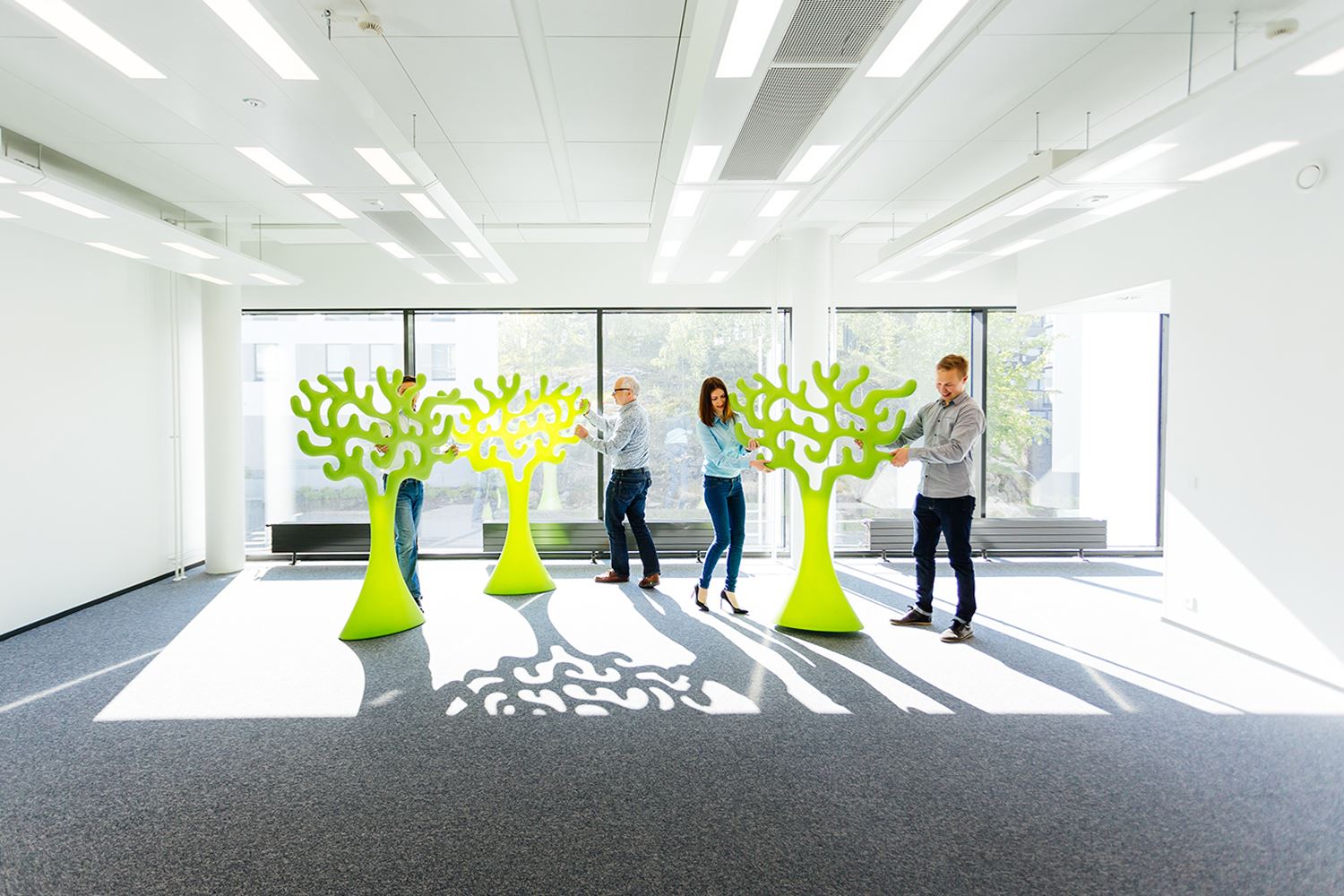The advantages of new or renovated business premises include energy efficienciency, functionality of the premises, modern building systems and a good location.
How is ESG reflected in property development?

The environment, social and governance
The ESG breakdown provides an excellent framework for assessing the responsibility and sustainability of property development and business premises construction.
Environment – criteria for environmental responsibility
The renewable natural resources produced by the Earth over a year are currently already used up nearly halfway through the year. In order to preserve the preconditions for a good life for future generations, it is important that we all take steps to reduce consumption and update our actions to comply with the principles of sustainable development.
The climate impact is considerable in the property sector as buildings produce about one third of Finland’s greenhouse gas emissions and consume about 40% of the energy we use. As it is, the sustainability of our building stock is a key factor in achieving our environmental objectives. Sustainable property development and responsible use of business premises means taking the carrying capacity of the environment into account in all activities related to the development, construction and use of a property.
The sustainability and energy-efficiency of business premises and the size of their carbon footprint are already affected by the solutions made during the design of the property and by the material and work method choices made during construction. On the other hand, the property user’s own everyday choices throughout the property’s life cycle are also of great importance.
As a property developer and builder, we are responsible for planning a construction project and choosing materials that have the smallest possible carbon footprin, natural values are taken into account and the principles of the circular economy guide our choices. We measure our performance by calculating the carbon footprint of all of our self-developed projects.
Social – criteria for social responsibility
Large companies exert significant influence on our society. We are aware of our own responsibility in developing our society and building a better living environment. Our task is to identify the effects of global megatrends on the property market and provide our customers with future-proof and responsible solutions for business premises that increase the well-being of personnel. We want to understand the needs of our customers and offer just the right kind of solutions that genuinely support working in a rapidly changing market situation.
For example, together with The NextGen Project expert network, we have launched the YIT NextGen Hybrid Work Lab project, for which we recruited 30 young experts to innovate with the themes of future work. The main theme was hybrid work, which is examined from the technology, people and spaces point of view. The Hybrid Work Lab combined lectures, group work and discussions with several inspiring change makers.
Read more and download a free report on how to manage hybrid work or read more about the changes in knowledge work.
As regards our own personnel, it is of the utmost importance that the working process is safe. We strive by all means available to grow and develop an accident-free working community and a culture that supports it. We put special effort in strengthening well-being at work and personal growth. We appreciate the possibility to receive open feedback from our personnel throughout the year with our own workplace atmosphere survey.
We also bear our social responsibility by educating the makers of the future. We hire trainees irrespective of business cycles and have been developing our own YIT Polku trainee programme for about two decades.
YIT is the ideal construction industry employer for the sixth consecutive year
Governance – criteria for governance responsibility
Responsible construction also includes employment and building contracts to ensure that we do not use illegal labour or trample on employment contracts on our construction sites. We undertake to comply with the principles of good corporate governance and YIT Code of Conduct. Our operations are ethical and transparent, which also extends to cover the entire procurement chain of our partners. With YIT Ethics Channel, all of our stakeholders, such as our workers, customers, suppliers and other partners, can report potential deviations and breaches.
Read more about reporting misconduct here.





